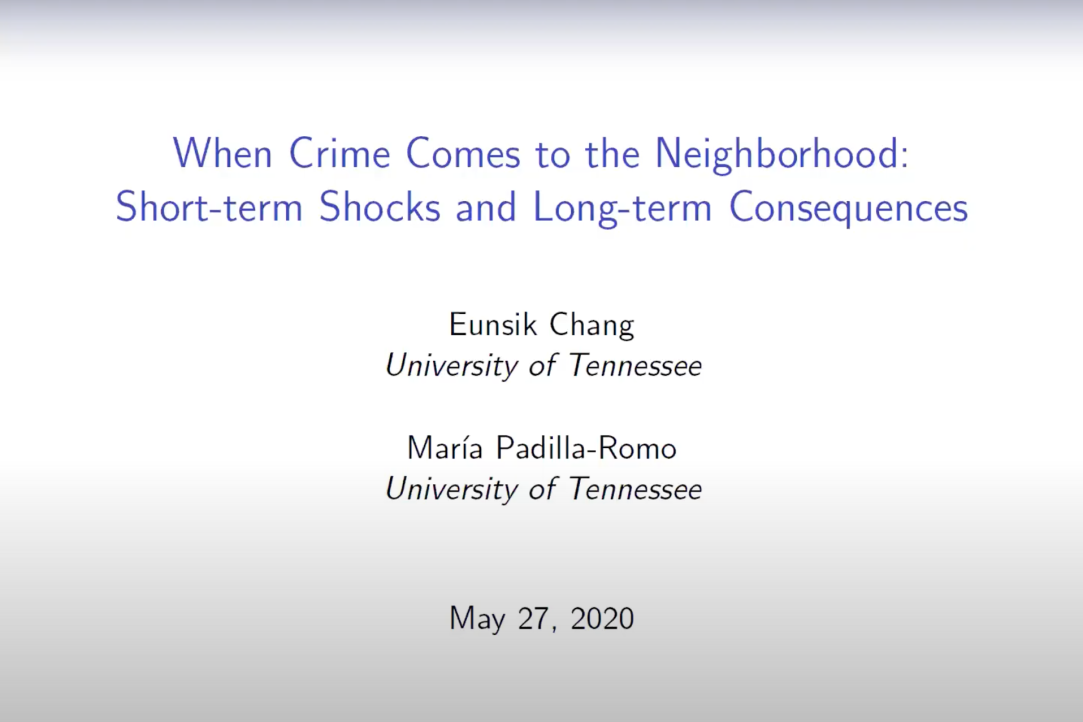CInSt research seminar
Mar├Ła Padilla-Romo presented her paper "When Crime Comes to the Neighborhood: Short-Term Shocks to Student Cognition and Secondary Consequences" on the regular CInSt research seminar on 28 May

This paper provides evidence that even short-term shocks to student cognitive performance have long-lasting consequences for human capital development. The authors use administrative data from Mexico City to show that studentsŌĆÖ exposure to violent crime in the week immediately prior to a high-stakes exam lowers femalesŌĆÖ test scores by 11 percent of a standard deviation. As a result, 19 percent of female students exposed to violent crime are subsequently assigned to less-preferred, lower-quality high schools. The authors find no such effect for males, leading to a further gender disparity in test scores and later education outcomes. The authors show that crime-induced concentration problems are an underlying mechanism behind the detrimental effects on test scores. Moreover, the effects are transitory and highly local, suggesting they are not driven by changes in school supply.┬Ā
The link to watch the seminar on YouTube:
https://youtu.be/0Paava4OM1Y
